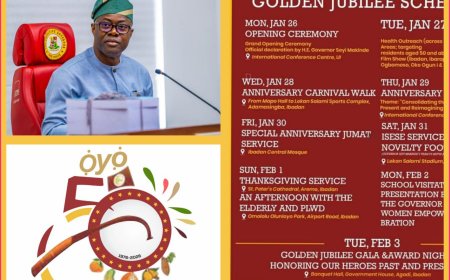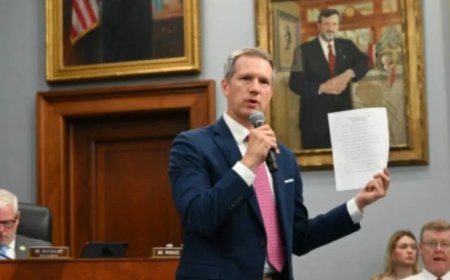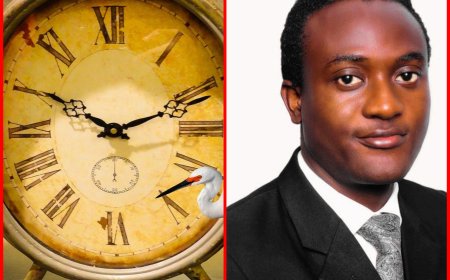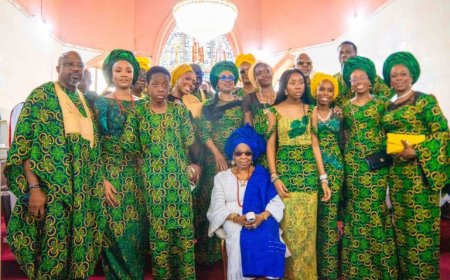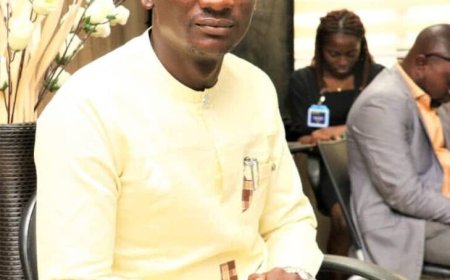Kemi Badenoch and Nigeria: A Case of the Monkey and the Tiger?
By: Babafemi A. Badejo
There is this viral video of a monkey that took on a huge predator – a tiger. I could not help but pause with amusement and watch that video repeatedly whenever it pops up on my WhatsApp. In that video, the tiger uses up its total strength in trying to catch the monkey perching on a tree branch. The monkey easily swings forward or backward or changes to a new branch altogether, making the tiger miss. As the tiger nurses its failure, the monkey launches a quick taunt and jumps away. The monkey enjoys itself to the chagrin of the frustrated tiger.
It seems Mrs. Kemi Badenoch, British Conservative Party leader’s recent assertion that she, as a British woman of Nigerian descent, cannot pass Nigerian citizenship to her children because of her gender, is another case of the monkey taunting the tiger. I would like to believe that Kemi, after her interview, was laughing, expecting that Nigerians would soon start leaping on her case as she got media attention.
Nigeria’s 1999 Constitution gave an advantage to a woman married to a Nigerian man and not vice-versa. While Mr. Badenoch is not asking for Nigerian citizenship, it should be noted that the Nigerian Constitution allows even him to acquire Nigerian citizenship by naturalisation, if he so desires under Sec. 27.
If Kemi had renounced her citizenship and gave birth to her children outside of Nigeria, they would not qualify under section 26 (2) (a). The only potential beneficiary who could be at a disadvantage would be a male spouse of a Nigerian woman. Mr. Badenoch would not be in a position to file for citizenship by registration.
The portion of the 1999 Constitution under citizenship does not in any way put Kemi’s children at any disadvantage. In fact, Sec. 26 (2) (b) cures the unfortunate patriarchal orientation of the 1999 Constitution with respect to the offspring of a Nigerian. Kemi Badenoch’s children by virtue of Sec. 26 (2) (b) of the Nigerian constitution are entitled to citizenship by registration based on any of their grandparents being or having been a Nigerian. Not only is Kemi’s mother alive as a Nigerian, her late father, Dr Femi Adegoke, aka “Fariga’s” pedigree and love for Nigeria, is well known.
Kemi, having identified and connected with her Yoruba roots, should be a role model on integrity as expected of an Omoluabi. Integrity—olu-iwa—involves honesty, consistency, and doing the right thing, even when no one is watching. In a world of quick fixes and shortcuts, integrity helps build trust, both in one’s career and relationships. Corruption, which erodes integrity, is the antithesis of being an Omoluabi. Corruption is destructive, harming society while benefiting selfish individuals who lack conscience. Kemi had no business telling a blatant lie for whatever reason to the whole world on something the 1999 Constitution of the Federal Republic of Nigeria is noticeably clear about. Mrs. Badenoch’s children are entitled to be Nigerians should they elect so, when they are of age.
With several aides and tools available to her, it is impossible that Kemi could not have used Google or ChatGpt for the true position of the Nigerian Constitution before she went on CNN. Aside from “a monkey-tiger taunting provocation” the situation suggests to me, that she may just be attempting to exploit certain “weaknesses” in the Nigerian Constitution that had patriarchal trappings to serve whatever her interests may be.
Though the Nigerian Presidency was right to swiftly rebut Mrs. Badenoch’s claim, which misrepresents Nigerian law and fuels harmful stereotypes about gender discrimination in Nigeria’s nationality laws, I wonder if we are not allowing Kemi to exploit us for media attention. Were this the case, it would constitute a needless distraction from real issues affecting Nigerians at home and in the diaspora.
Even though I had, in an earlier piece, submitted that, “Kemi Badenoch being Yoruba does not make her Nigeria’s Ambassador to the United Kingdom. We should please let her be”, on this occasion where she has acted so wrongly and in total disregard for facts, we all should point out her error.
However, I wish Mrs. Badenoch more strength in her “monkey taunting our tiger” displays. It is good there is someone of Nigerian descent who counts outside of Nigeria and willing to continue to call attention to the misgovernance in Nigeria that continues to drive our children into seeking alternatives to building a viable Nigeria from within Nigeria as opposed to looking for a better life in the larger world.
Kemi’s provocative taunting is useful since the yearning and cries for good governance in Nigeria by some of us are either being ignored or met with bogus statistics, just as we were inundated with similar bogus statistics in the IBB/Olu Falae years which was about the time Kemi left our shores to exercise her British citizenship.
That Kemi still shows concern through her provocative taunts is, for me, very welcome. We should not all accept leadership deficit and corruption as normal in a transactional exchange of silence for droppings from the greedy munching with more than ten fingers at the dinner table as national patrimony is depleted. There are ways in which Mrs. Badenoch could make life uncomfortable for those who pocket(ed) the resources meant for infrastructural developments in Nigeria and easily use the ill-gotten wealth to enjoy unimaginable qualities of life in the West as many among our best brains, who would otherwise have been nation-builders, pursue the “japa” option.
*Babafemi A. Badejo, the author of a number of books, including a best seller on politics in Kenya as well as why peace has been elusive in Somalia, was a former Deputy Special Representative of the UN Secretary General for Somalia, and a former Professor of Political Science and International Relations at Chrisland University, Abeokuta. He is currently the Chairman of the national NBA Anti-Corruption Committee and a Consultant at Yintab Strategy Consults. He is the recipient of the 2025 Nelson Mandela Distinguished Africanist Award of the African Annual Conference at the University of Texas at Austin.
What's Your Reaction?











